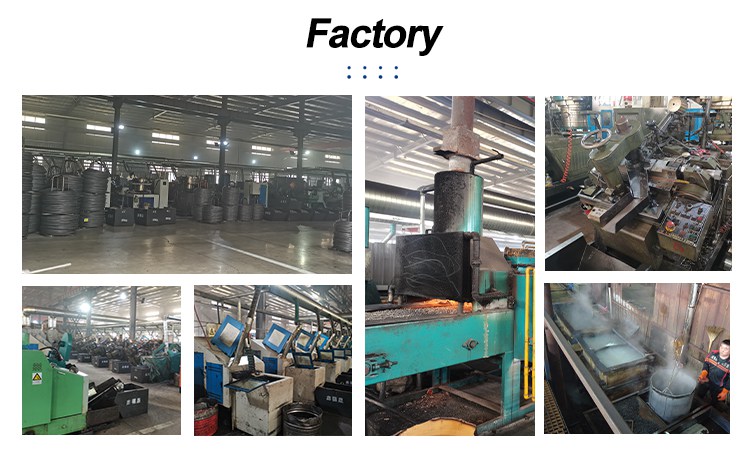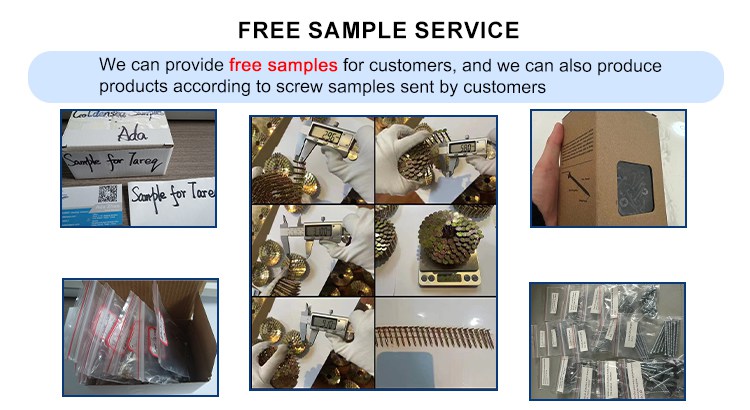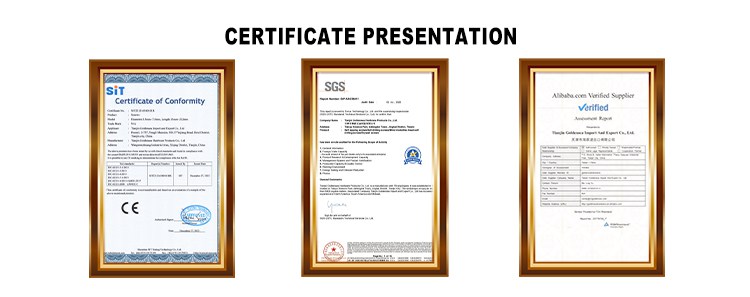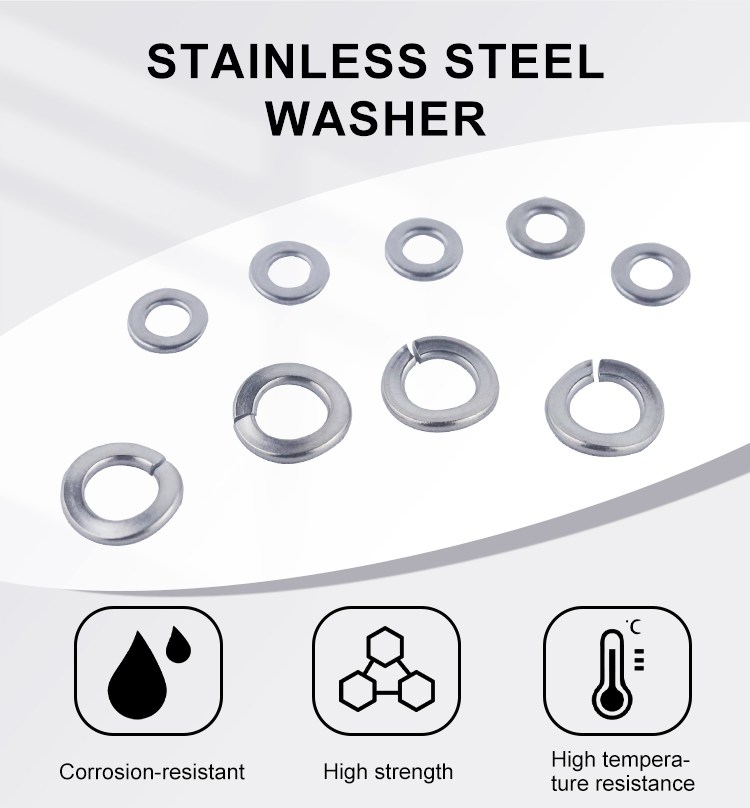
A stainless steel washer is a thin sheet made of stainless steel, which is commonly used in various mechanical equipment for purposes such as support, filling, and balancing.
The advantages of stainless steel washers mainly include the following aspects:
1. Corrosion resistance: Stainless steel washers perform well in humid and chemically corrosive environments and can maintain their performance for a long time, prolonging their service life.
2. High strength: Stainless steel has high strength and hardness, capable of withstanding large axial loads, suitable for high-load situations.
3. Wide application fields: Stainless steel washers are widely used in petrochemicals, mechanical equipment, power engineering, metallurgical industry, shipbuilding, pharmaceuticals, nuclear energy, aerospace, etc., especially in high-temperature, high-pressure, cryogenic, vacuum, and environments with rapidly changing operating parameters and corrosive media.
4. High-temperature resistance: Some stainless steel washers can withstand temperatures up to 800°C, suitable for high-temperature environments.
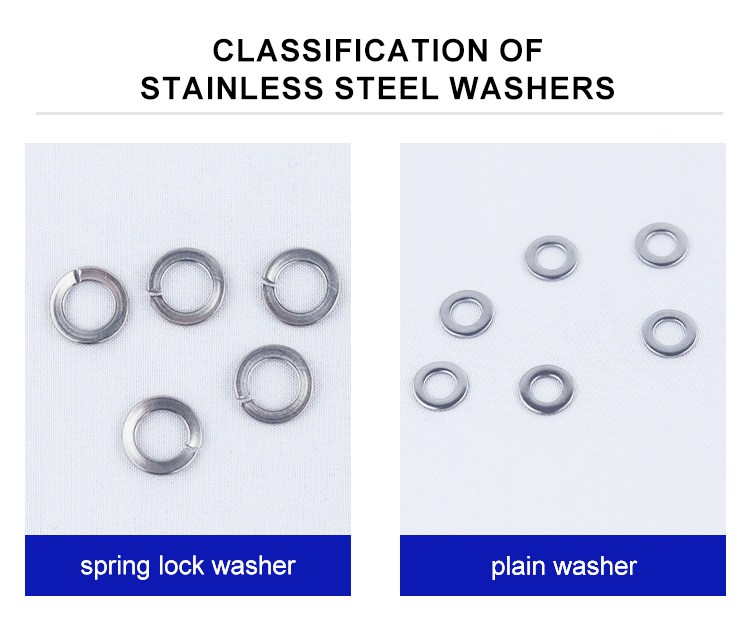
The differences and functions of plain washers and spring lock washers
A plain washer is a type of washer with a flat shape. Its main function is to increase the contact area, thereby distributing the pressure and protecting the surface of the connected component. In practical applications, plain washers can effectively prevent the nut or bolt head from causing damage to the surface of the connected component during tightening. For example, when connecting materials that are relatively soft or brittle, plain washers can play a very good buffering and protective role. However, plain washers do not have anti-loosening function. Their main responsibility is more as an auxiliary component to provide stability and protection for the entire connection system.
The design purpose of the spring lock washer is to prevent loosening. Its principle of preventing loosening is that after being flattened, it generates continuous elasticity, which keeps a certain friction force between the nut and the bolt's threaded connection pair, thereby generating a resistance torque and preventing the nut from loosening. In addition, the sharp corners at the opening of the spring lock washer can be embedded into the surface of the bolt and the connected component, further preventing the rotation of the bolt. In some occasions with frequent vibrations, such as the connection between a motor and a base, the spring lock washer can effectively prevent the nut from loosening due to vibration.
However, the anti-loosening ability of the spring lock washer is not foolproof. When the pre-tightening force of the bolt is too large, the spring lock washer may be completely flattened, or even lead to bulging rings or fractures. In this case, the spring lock washer not only fails to play the role of anti-loosening, but may also reduce the pre-tightening force of the bolt and increase the risk of loosening. Therefore, the spring lock washer is more suitable for applications where the pre-tightening force of the bolt is not highly required and the dynamic load is small.
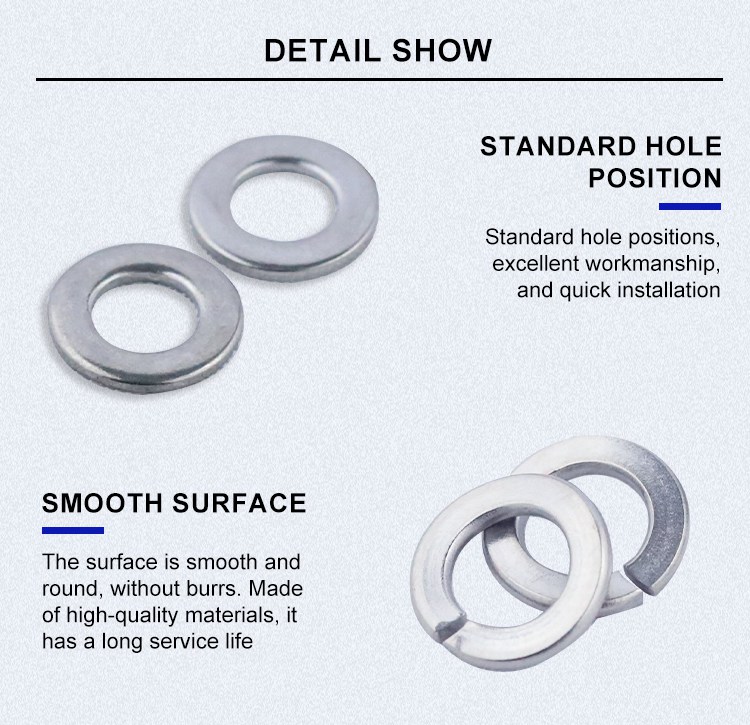
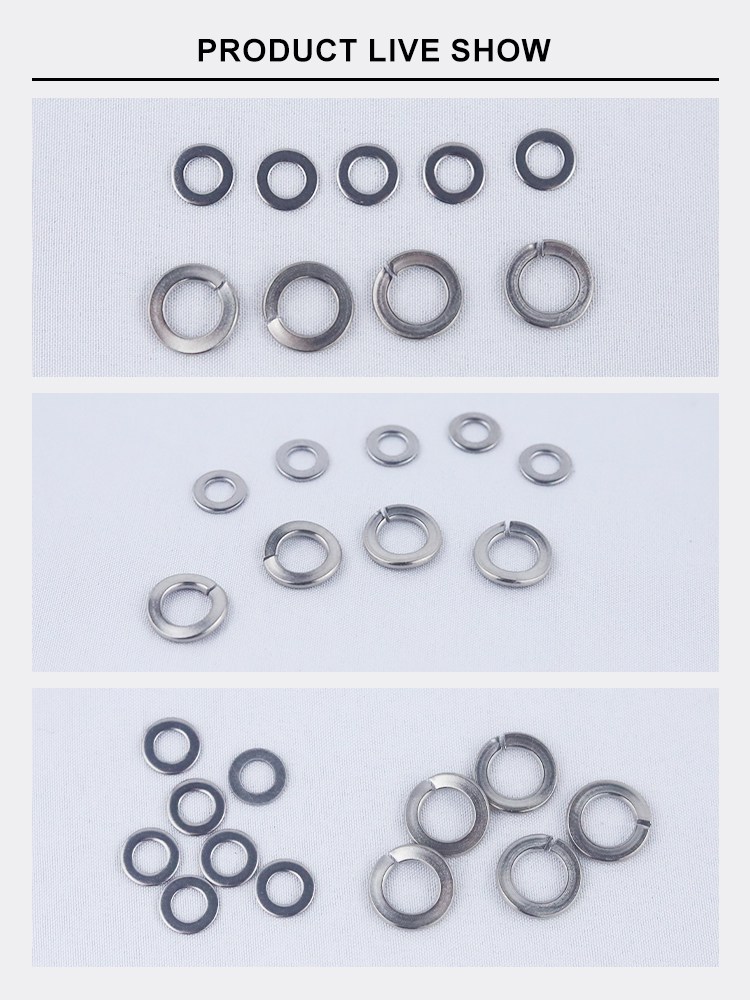
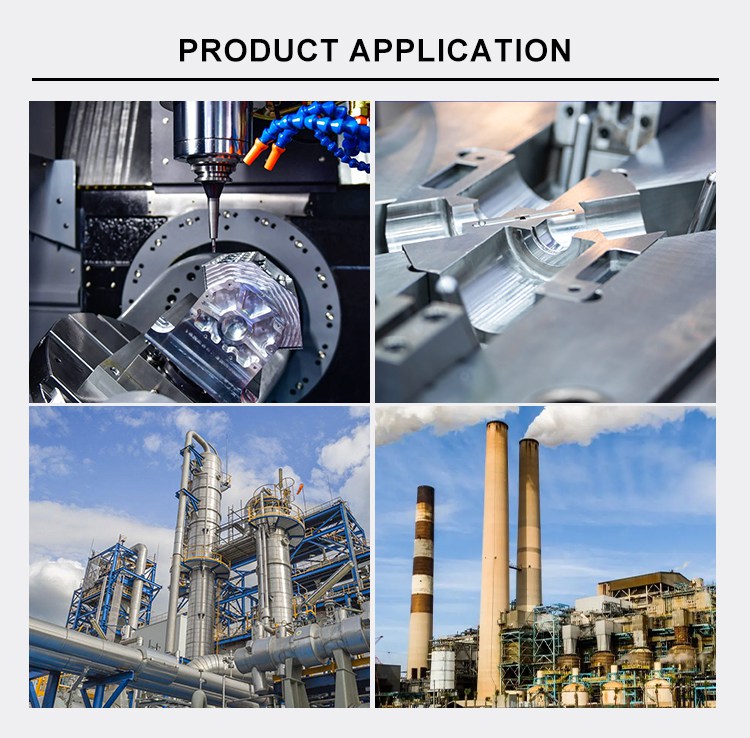 The application fields of stainless steel washers are very extensive, mainly including the following aspects:
The application fields of stainless steel washers are very extensive, mainly including the following aspects:
1. Electronic Instruments and Precision Machinery: Stainless steel washers are commonly used in electronic instruments and precision machinery to ensure the stability and accuracy of the equipment.
2. Mold Manufacturing: In mold manufacturing, stainless steel washers are used to measure the clearance and solve the shaking problems caused by mechanical aging.
3.Petrochemicals, Machinery, Power Engineering, Metallurgy Industry, Shipbuilding, Pharmaceuticals, Nuclear Energy and Aerospace: Stainless steel washers have extensive applications in these fields, performing exceptionally well in high-temperature and high-pressure environments.
4. Environmental Protection Industry: Suitable for flange connections in environmental protection, chemical, and petroleum industries.
